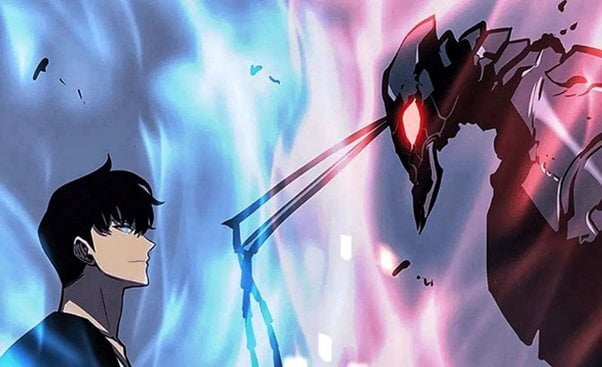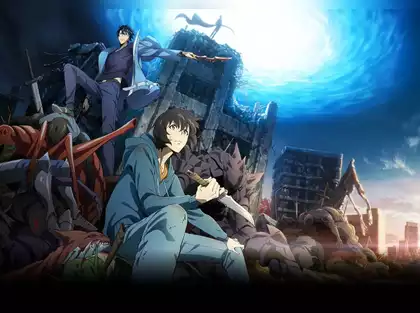
🎬 Solo Leveling Producer Confirms Lengthy Production Time, Raising Concerns Over Season 3
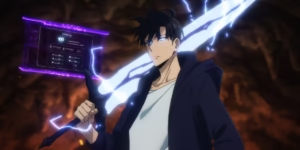
Since Solo Levelling’s explosive first season, which brought Sung Jin-Woo’s transformation from the weakest hunter in the world to humanity’s greatest hope to screens all over the world, the anime community has been buzzing. The series swiftly topped the charts and became one of the most talked-about adaptations in recent memory thanks to its amazing animation, stirring soundtrack, and authentic storytelling.However, things might not be as easy behind the scenes as they appear. The Solo Levelling producer recently stated in an interview that the production period for each episode is far longer than expected, which is raising fan concerns, particularly regarding the potential for a Season 3.
A Look Inside the Production Process 🕰
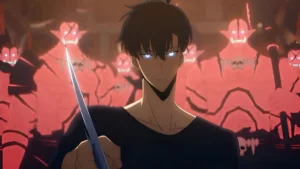
The disclosure was made at a media roundtable where the production crew discussed the tremendous amount of work needed to make the well-loved manhwa an anime. The producer claims that:From early storyboarding and screenplay to final animation, music scoring, and post-production, each episode takes many months to finish. It takes a great deal of coordination and attention to detail.
While fans have long appreciated the high-quality visuals and fluid fight scenes that Solo Leveling delivers, few realized the true cost in time and labor behind each episode.
This has sparked a wider conversation in the anime community: Is the current pace sustainable, especially if the series continues to gain popularity and demands grow for more frequent releases?
The Implications for Season 3
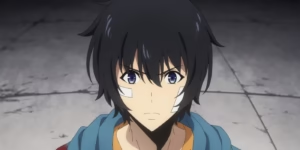
The main conclusion—and the reason for worry—is what the series’ future holds in light of this protracted production schedule. Season 2 is presently under production, whereas Season 1 has already ended. However, fans may need to reevaluate their expectations if they were looking for rapid back-to-back releases or perhaps an annual release plan.
The lengthy production time may indicate the following:
Postponed Release Dates: A season may take far over a year to complete if each episode takes months to produce.
- Long Season Breaks: Unless the studio grows its staff or discovers ways to expedite the process, viewers may see several years between seasons.
- Increased Stress on Studio Employees: The anime business is already notorious for overwork and burnout, which could result from the present pace.
- Depending on how long Season 2 takes and what resources are allotted to future production, some fans are now theorising that Season 3 might not premiere until 2026 or later.
Why It Takes So Long to Produce
Epic Saga
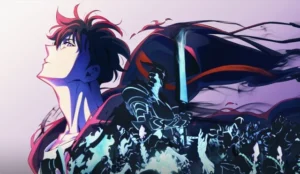
The lengthy procedure is being caused by a number of factors:
High Standards for Animation: Solo Levelling isn’t your typical fantasy series. Careful animation is required for the dynamic battle sequences, shadow summoning effects, and complex backgrounds; this frequently combines traditional hand-drawn work with digital upgrades. Complex Fight Choreography: Every fight sequence has the feel of a motion picture. Storyboarding choreography like this takes weeks, and accurately animating it takes even longer.
International Coordination: Because Solo Levelling is a worldwide phenomenon, production teams are collaborating across borders, including Japan, Korea, and other places, which makes each episode logistically more complex.
Voice Acting and Sound Design: The story’s emotional impact also greatly depends on excellent voice acting and a strong sound design, both of which take more time to do well.
The Reactions of Fans
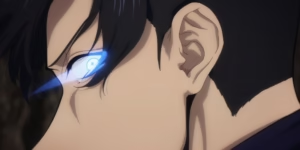
Following the producer’s remarks, fans posted conflicting opinions on social media. Many people were grateful for the studio’s dedication to excellence, but others were annoyed by the possibility of protracted wait times and erratic delivery dates.
- Reactions on Reddit and Twitter include:
- “I’d rather wait for perfection than rush for shit.”
- “This should not turn into another Attack on Titan scenario where there are gaps for a whole year.”
- Increase the team’s personnel and resources. Don’t exhaust them with a single performance!
- It appears that most people agree that while fans desire quality, they also want better scheduling, greater transparency, and equitable working conditions for those who labour behind the scenes.


